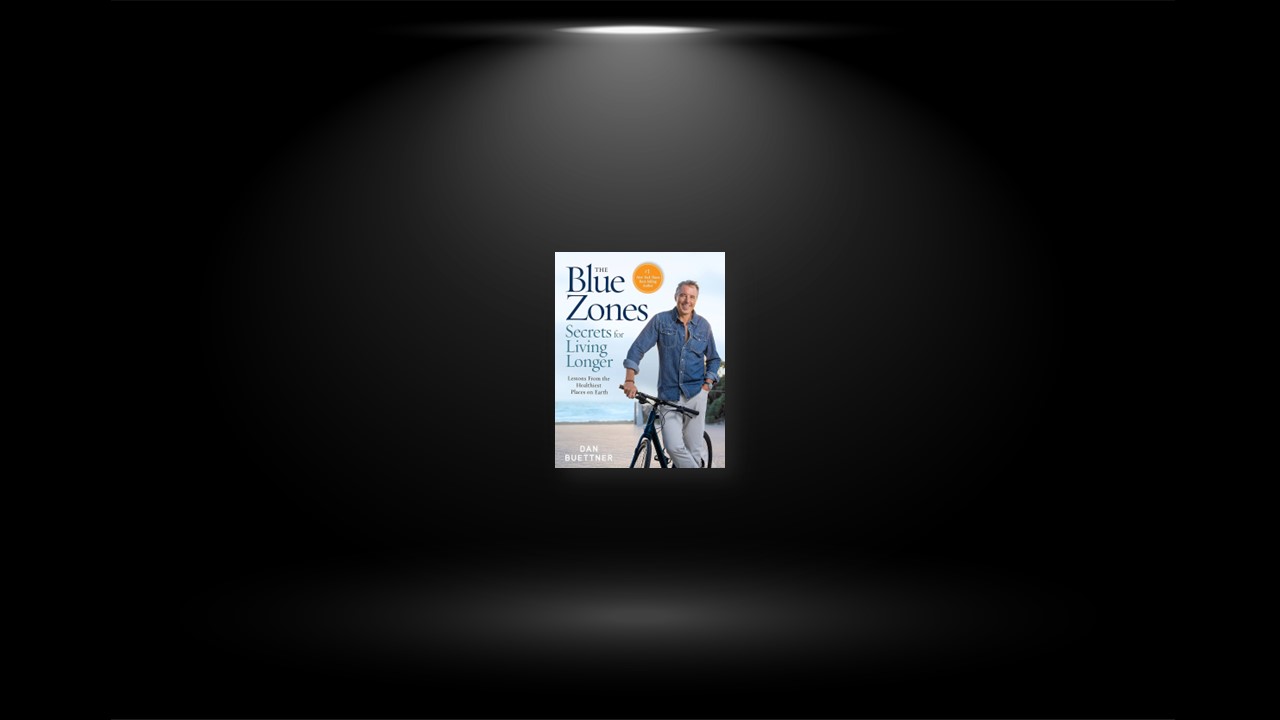LESSONS FROM SARDINIA’S BLUE ZONE
■ Eat a “peasant” plant-based diet. The classic Sardinian diet consists of cheap “peasant foods” like whole-grain sourdough bread, beans, garden vegetables, fruits, and, in some parts of the island, olive oil. Sardinians also traditionally eat pecorino cheese made from grass-fed sheep, whose cheese is high in omega-3 fatty acids. Goat’s milk is the dairy of choice, and meat is largely reserved for Sundays and special occasions.
■ Put family first. Sardinia’s strong family values help assure that every member of the family is cared for. People who live in strong, healthy families suffer lower rates of depression, suicide, and stress.
■ Celebrate elders. Grandparents can provide love, childcare, financial help, wisdom, and the expectations and motivation to continue traditions and push children to succeed in their lives. This may all add up to healthier, better-adjusted, and longer-lived children. It may give the overall population a life-expectancy bump.
■ Take a walk. Walking five miles or more a day, as Sardinian shepherds do, provides all the cardiovascular benefits you might expect, and also has a positive effect on muscle and bone metabolism without the joint pounding of running marathons or triathlons. If you want to live to 100, you’re much better off living in a walkable area than you are running off to the gym three or four times a week. And if you want an extra longevity bump, live in a place where the streets are steep.
■ Drink a glass or two of red wine daily. Sardinians drink wine moderately. Cannonau wine has two or three times the level of artery-scrubbing flavonoids as other wines. Moderate wine consumption may help explain the lower levels of stress among men.
LESSONS FROM COSTA RICA’S BLUE ZONE
■ Have a plan de vida. Successful centenarians have a strong sense of purpose. They feel needed and want to contribute to a greater good.
■ Drink hard water. Nicoyan water has the country’s highest calcium content, perhaps explaining the lower rates of heart disease, as well as the stronger bones and fewer hip fractures.
■ Keep a focus on family. Nicoyan centenarians tend to live with their families, and children or grandchildren provide support and a sense of purpose and belonging.
■ Eat a light dinner. Eating fewer calories appears to be one of the surest ways to add years to your life. Nicoyans eat a light dinner early in the evening. Nicoyan centenarians ate a traditional Mesoamerican diet highlighted by the “three sisters” of agriculture: beans, corn, and squash.
■ Maintain a social network. Nicoyan centenarians get frequent visits from neighbors. They know how to listen, laugh, and appreciate what they have.
■ Keep hard at work. Centenarians seem to have enjoyed physical work all their lives. They find joy in everyday physical chores, including gardening, maintaining their land, cooking, and caring for their grandchildren.
LESSONS FROM LOMA LINDA’S BLUE ZONE
■ Watch your body mass index (BMI). Adventists have healthier BMIs than the average American. Studies correlate excess weight with a higher risk of heart attack, stroke, high blood pressure, diabetes, arthritis, and several cancers.
■ Get regular, moderate exercise. The Adventist Health Studies show that getting regular, low-intensity exercise—like taking daily walks—appears to reduce chances of heart disease and cancers.
■ Spend time with like-minded friends. Adventists tend to spend time with lots of other Adventists. They find well-being by sharing one another’s values and supporting one another’s beliefs.
■ Snack on nuts. Adventists who consume nuts at least five times a week have about half the risk of heart disease and live about two years longer than those who don’t. At least four major studies have confirmed that eating nuts has a positive impact on health and life expectancy.
■ Give something back. Adventism, like many faiths, encourages and provides opportunities for volunteerism. Often the centenarians we spoke with stay active, find a sense of purpose, and stave off depression by focusing on helping others.
■ Avoid meat. Many Adventists follow a vegetarian or vegan diet. The AHS studies show that consuming fruits, vegetables, and whole grains seems to be protective against a wide variety of cancers. The longest-lived Adventists are vegetarian or pescatarian.
LESSONS FROM IKARIA’S BLUE ZONE
■ Mimic mountain living. The longest-lived Ikarians tend to be poor. Residing on the island’s steep terrain, they exercise daily by gardening, walking to their neighbor’s house, or doing their own yard work. The lesson for you: Engineer more movement into your life.
■ Eat a blue zones diet. Ikarians eat a variation of the Mediterranean diet, with lots of fruits and vegetables, whole grains, beans, and olive oil—but with more potatoes, greens, and beans. Try sautéing—not frying—with olive oil, which contains cholesterol-lowering monounsaturated fats.
■ Stock up on herbs. People in Ikaria enjoy drinking herbal teas with family and friends, and scientists have found that those teas pack an antioxidant punch. Wild rosemary, sage, and oregano teas also act as a diuretic, which can keep blood pressure in check by ridding the body of excess sodium and water.
■ Nap. Take a cue from Ikarians and enjoy a midafternoon break. People who nap regularly have up to a 35 percent lower chance of dying from heart disease. It may be because napping lowers stress hormones or rests the heart.
■ Fast occasionally. Ikarians have traditionally been devout Greek Orthodox Christians. Their religious calendar calls for fasting almost half the year. Caloric restriction—a type of fasting that cuts about 30 percent of the calories out of a normal diet—is the only scientifically proven way to slow the aging process in mammals.
LESSONS FROM OKINAWA’S BLUE
■ Find your ikigai. Older Okinawans can readily articulate the reason they get up in the morning. Their purpose-imbued lives give them clear roles of responsibility and feelings of being needed well into their 100s.
■ Rely on a plant-based diet. Older Okinawans have eaten a plant-based diet most of their lives. Their meals of stir-fried vegetables, sweet potatoes, and tofu are high in nutrients and low in calories. Goya, or bitter melon, with its antioxidants and compounds that lower blood sugar, is of particular interest.
■ Eat more soy. The Okinawan diet is rich in foods made with soy, such as tofu and miso soup. Flavonoids in tofu may help protect the heart and guard against breast cancer. Fermented soy contributes to a healthy intestinal ecology and offers even better nutritional benefits.
■ Garden. Almost all Okinawan centenarians grow or once grew a garden. It’s a source of daily physical activity that exercises the body with a wide range of motion and reduces stress.
■ Build your moai. The Okinawan tradition of forming a moai provides secure social networks. These safety nets lend financial and emotional support in times of need and give all their members the stress-shedding security of knowing that there is always someone there for them. To build your own, see here.
■ Enjoy the sunshine. Vitamin D helps produce stronger bones and healthier bodies and reduce the chance of depression. Spending time outside each day allows older Okinawans to have optimal vitamin D levels year-round.
LESSONS FROM SINGAPORE’S BLUE ZONE
■ Choose a safe neighborhood in a safe city. Pick a neighborhood with well-lit streets, free of graffiti. Join a neighborhood watch group and make it a point to know your neighbors at least three doors down on each side of your home.
■ Live your values. Take time to know your values and let them guide you in choosing a place to live, a social network, and a job. If your family is a priority, try to live near them. If you love to work with your hands, don’t get a job in an office.
■ Find your tribe. Join a club, get involved at church, double down on your family, be the best sports fan you can. Likely you will feel more secure—and enjoy the camaraderie.
■ Look for an environment of trust. Move to a place where you trust your neighbors and local officials, work at a place where you trust your boss and co-workers, and seek out trustworthy friends. At a certain level, trust is more important than income.
■ Buy good health care. Make sure you’re covered adequately by health insurance. It’s hard to live happily if you’re not healthy. Knowing that you’ll get good care if you get sick removes one of the main stressors in life.
■ Focus on financial success. If status, financial security, and a sense of accomplishment are important to you, you might want to put most of your life’s focus on making as much money as you can. For someone like you, by and large, the richer you get, the more satisfied you’ll be.


